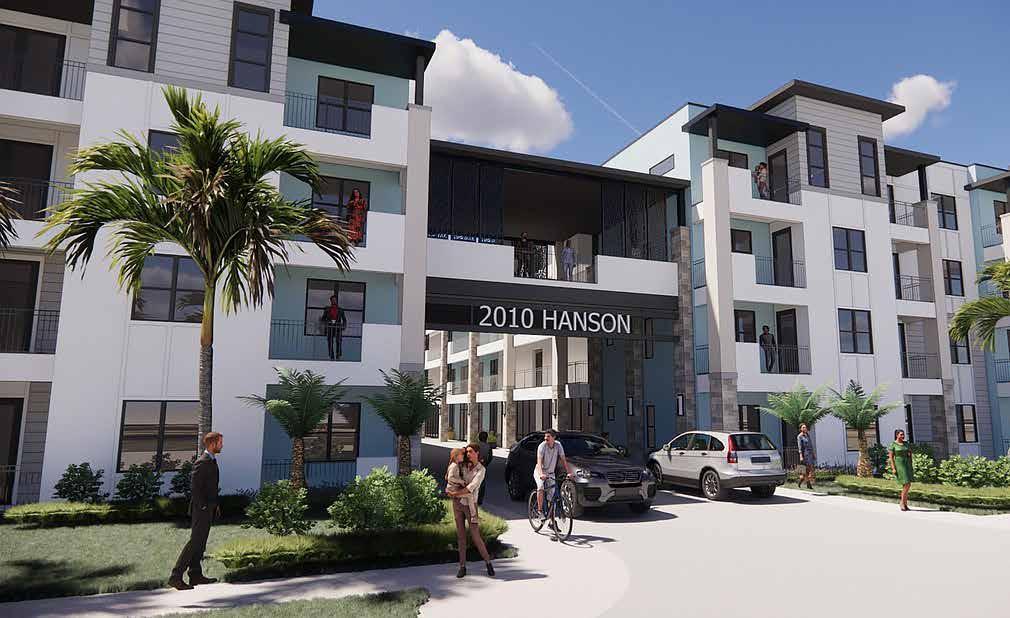
2 minute read
LEGISLATIVE UPDATE:
Incentives to Build Affordable Workforce Housing Anchor New State Law
A new state law that goes into effect July 1, signed by Gov. Ron DeSantis in Naples, represents the largest public investment in affordable housing in the state’s history. The Live Local Act (Senate Bill 102) provides $711 million for a number of incentives to developers, as well as new stipulations on local governments.
The new law has won praise from affordable housing advocates and policymakers alike.
Michele Hylton-Terry, executive director of the Fort Myers Community Redevelopment Agency (CRA), called the Live Local Act a critical piece of the puzzle. “It’s an additional tool that we can use to help bridge the affordable housing gap here in Lee County,” she said.
Hylton-Terry expects that the Fort Myers CRA’s local tax incentives through Tax Increment Financing will continue to drive most local projects. Still, she’s eager to see how the new plan further incentivizes homebuilders to look beyond just their bottom lines.
Hylton-Terry, who succeeded longtime Fort Myers redevelopment head Don Paight, the agency’s founding executive director, also anticipates that the new state investment will spur further innovation, as well as a more systematic approach to not just creating affordable housing, but also the good-paying jobs that help pay rent and mortgage in those affordable housing units.
“As a CRA, we typically invest in physical buildings and infrastructure,” she said. “We need to look at the human infrastructure, and how to invest in people. It’s all tied together.”
Those investments — in both buildings and people — are now poised to grow significantly under a multifaceted new law with fine print that stretches beyond 100 pages. Highlights can be found on the opposite page, with additional details available at www.floridahousing.org/live-local-act.
The $711 million in total funding includes $252 million to State Housing Initiatives Partnership (SHIP) and $259 million to State Apartment Incentive Loan (SAIL), with an additional $150 million annually to SAIL over the next decade.
Veterans Housing
Expands the Hometown Heroes Program with an additional $100 million appropriation while increasing maximum loan amount from $25,000 to $35,000. It also broadens eligibility from career-based assistance to income-based down payment assistance.
Zoning Preemption
Prevents a local government from regulating the use, density or height of an affordable housing development if a proposed rental project is multifamily or mixed-use residential and located in any area zoned for commercial, industrial or mixed use. A local government cannot require an authorized development to obtain a zoning/land use change, special exception, conditional use approval, variance or comprehensive plan amendment for use, density or height. Provides for an expedited approval process, giving developers more tools to build mixed-use projects.
Property Tax Exemptions
Allows counties and municipalities to offer a property tax exemption to property owners who dedicate units for affordable housing for extremely low-income people, very low-income people, or both. Further, property tax exemptions are now available for land owned by a nonprofit leased for at least 99 years as affordable housing for extremely low to moderate-income people.
Rent Control
Removes provisions that allowed local governments to impose rent control under certain limited circumstances.
Advertising Affordable-Housing Land
Requires local governments to publish online their inventory of local government-owned property that may be suitable for affordable housing development..
Private-Sector Investment
Encourages private investment in affordable housing through a new corporate tax donation program. Businesses can contribute to SAIL instead of paying portions of corporate and insurance premium taxes, up to $100 million a year. It also provides a small refund on sales taxes for building materials used by developments financed through the Florida Housing Finance Corporation and provides additional gap financing to workforce housing programs that may face construction hardships.
Missing Middle Exemption
Creates a new “Missing Middle” property tax exemption for new or recently rehabilitated developments that set aside at least 70 current market rate units into affordable units.
By Joseph Coleman, Esq.






